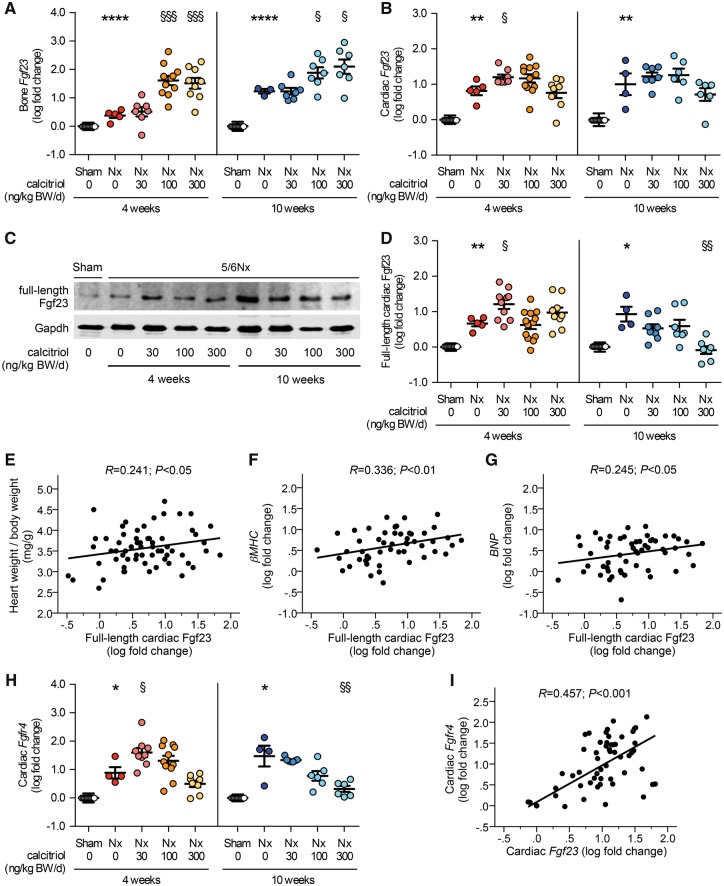FIGURE 2.
Cardiac Fgf23/Fgfr4 expression is elevated in uremic rats and reduced by calcitriol treatment. (A) Quantitative RT-PCR analysis of Fgf23 mRNA expression in bone reveals significantly increased levels in vehicle-treated 5/6Nx rats compared with sham. Bone Fgf23 mRNA levels in uremic rats are elevated by calcitriol dosages of 100 and 300 ng/kg in a time-dependent manner. (B) Cardiac Fgf23 mRNA levels significantly increase in vehicle-treated 5/6Nx rats 6 and 12 weeks after surgery compared with sham. The expression of cardiac Fgf23 in uremic rats does not further increase by long-term treatment or higher dosages of calcitriol. Cardiac levels of the Fgf23 full-length protein are significantly induced in uremic rats compared with sham demonstrated by (C) immunoblot analysis of total heart extracts followed by (D) densitometric quantification. Cardiac full-length Fgf23 protein levels in 5/6Nx rats decrease upon calcitriol treatment at higher dosages for 10 weeks compared with vehicle-treated uremic rats. Gapdh serves as a loading control. In uremic rats, the amount of full-length cardiac Fgf23 protein positively correlates with (E) the heart weight:body weight ratio and with the enhanced (F) βMHC and (G) BNP mRNA levels. (H) Fgfr4 expression levels are significantly elevated in heart tissue of 5/6Nx rats when compared with sham animals as determined by quantitative RT-PCR analysis. Higher calcitriol dosages reduce cardiac Fgfr4 expression in a dose-dependent manner. (I) In uremic rats, the expression of Fgfr4 correlates positively with the cardiac Fgf23 mRNA levels. N = 4–13 animals in each group; *P < 0.05, **P < 0.01, ***P < 0.001, ****P < 0.0001 versus sham; †P < 0.05, ††P < 0.01, †††P < 0.001 versus vehicle-treated 5/6Nx.

